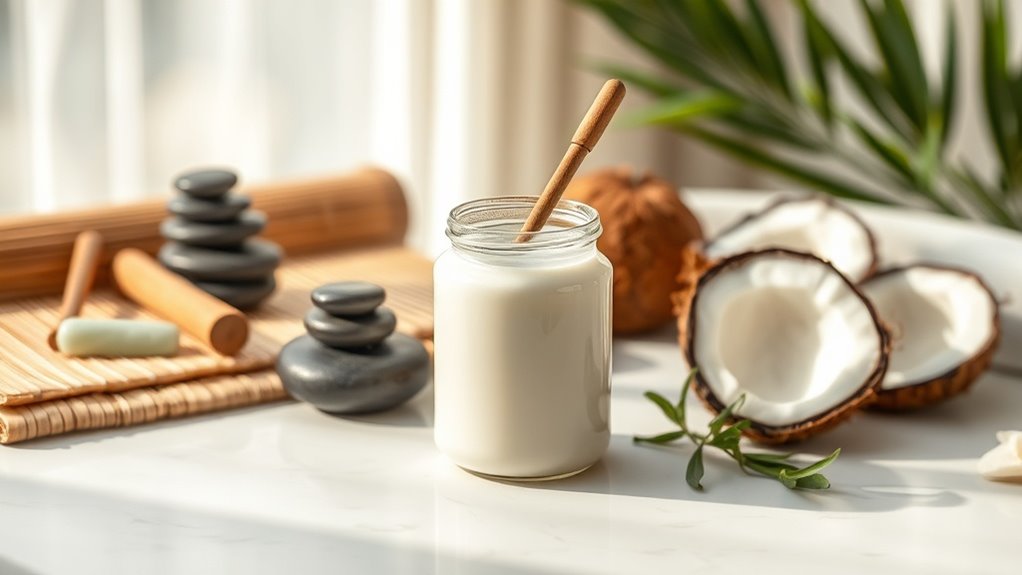Constipation Remedies That Work Naturally
If you’re dealing with constipation, you’ll find relief through scientifically-proven natural remedies rather than reaching for over-the-counter laxatives. Chronic constipation affects up to 20% of adults worldwide, impacting both physical comfort and daily routines. While occasional irregularity is common, understanding the root causes and implementing natural solutions can help you establish healthy bowel patterns without dependency on medications. Let’s explore these effective, gentle approaches to digestive wellness.
Understanding Constipation and Its Common Causes
Although constipation affects nearly everyone at some point, its definition varies among medical professionals and patients. You’re considered constipated when you have fewer than three bowel movements per week, accompanied by hard stools that are difficult to pass.
Common causes include dehydration, lack of fiber, physical inactivity, and certain medications. Before trying constipation remedies, it’s important to understand that stress, ignoring urges to defecate, and dietary changes can disrupt your normal bowel patterns. Medical conditions like hypothyroidism, diabetes, or neurological disorders may also trigger constipation, requiring professional evaluation to determine the most effective treatment approach. Additionally, maintaining consistent levels of natural fiber intake is crucial for preventing constipation and promoting healthy digestion.
High-Fiber Foods to Improve Bowel Movements
When it comes to relieving constipation naturally, increasing your dietary fiber intake stands as one of the most effective solutions.
You’ll find abundant fiber in leafy greens like spinach and kale, legumes such as lentils and chickpeas, and whole grains including oats and quinoa. Fresh fruits, particularly apples, pears, and berries, provide essential fiber along with natural digestive enzymes.
To maximize benefits, aim for 25-35 grams of fiber daily. Start gradually to avoid digestive discomfort, and pair high-fiber foods with adequate water intake. This combination helps create soft, well-formed stools that pass more easily through your digestive tract, contributing to optimal bowel health.
Hydration and Exercise for Better Digestive Health
Proper hydration and regular physical activity work together to support the effectiveness of a high-fiber diet in preventing constipation.
You’ll need to drink at least 8 glasses of water daily to help soften stools and facilitate bowel movements. Warm liquids, especially in the morning, can stimulate peristalsis.
Exercise stimulates your intestinal muscles and promotes regular bowel movements. Aim for 30 minutes of moderate activity like brisk walking, swimming, or cycling five times weekly.
Even simple activities like climbing stairs or doing household chores can help maintain digestive regularity. Consistent movement throughout your day is more beneficial than sporadic intense workouts. Staying hydrated is linked to a 58% reduced risk of constipation according to meta-analyses.
Beneficial Herbs and Natural Supplements
Many herbs and natural supplements can effectively relieve constipation while being gentler on your digestive system than chemical laxatives.
Consider incorporating psyllium husk, which absorbs water to form a soft, bulky stool.
Senna leaves contain compounds that stimulate intestinal contractions, while ground flaxseeds provide both fiber and beneficial omega-3 fatty acids.
Magnesium citrate helps draw water into the intestines and relaxes bowel muscles.
You’ll find relief with aloe vera juice, which contains natural compounds that increase intestinal water content and stimulate mucus secretion.
Probiotics support healthy gut bacteria, while peppermint and ginger can reduce bloating and promote regular bowel movements.
Simple Lifestyle Changes for Regular Bowel Habits
Making lasting improvements to your bowel habits requires fundamental lifestyle adjustments that extend beyond temporary remedies. Regular bowel movements depend on consistent daily habits and healthy routines.
| Action | Benefit |
|---|---|
| Exercise 30 min daily | Stimulates intestinal muscles |
| Eat meals at set times | Regulates digestive rhythm |
| Drink 8 glasses of water | Softens stool naturally |
| Never ignore urges | Maintains natural reflexes |
| Set bathroom schedule | Trains bowel regularity |
You’ll need to maintain these changes consistently. Focus on creating a morning routine that includes fiber-rich breakfast, hydration, and physical activity. Respond promptly to bowel signals, and don’t rush bathroom time.
When to Seek Medical Attention for Constipation
While most cases of constipation can be managed with lifestyle changes and over-the-counter remedies, certain symptoms warrant immediate medical evaluation.
Don’t delay seeking medical care if you notice any of these warning signs:
- Severe abdominal pain accompanied by bloating and inability to pass gas
- Blood in your stool or bleeding during bowel movements
- Unexplained weight loss of more than 10 pounds without dietary changes
- Persistent constipation lasting more than three weeks despite lifestyle modifications
These symptoms could indicate serious underlying conditions like bowel obstruction, inflammatory bowel disease, or colorectal cancer that require prompt professional assessment and treatment.




